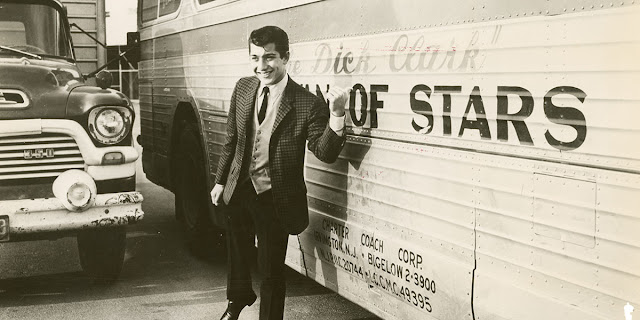A review by Sergio Martinez
The 49th edition of the Toronto International Film Festival
(TIFF) came to an end on Sunday, September 15, with the announcement of the
various awards given in different categories. The Audience Awards went to The
Life of Chuck (Mike Flanagan), The Substance (Coralie Fargeat) and The
Tragically Hip: No Dress Rehearsal (Mike Downie). Naturally, as a critic, one sometimes agrees
with the audience's sentiment – in this case, in agreement with The Life of
Chuck—but at other times, not.
OUR REVIEWS: THE BEST
Winter in Sokcho--Dir. Koya Kamura (France-Korea)
This film has the merit of turning a simple plot into a
story with profound connotations in which the search for identity and the
desire to deal with a past that continues to haunt the protagonists converge.
The life of young Soo-Ha (Bella Kim), a young woman who has studied and speaks
French, is turned upside down when Yan Kerrand (Roschdy Zem), a middle-aged
Frenchman who is a well-known artist in his country, arrives at the small inn
where she works. The visit, in the middle of winter, is a bit strange, even
more so for Soo-Ha, whose father was a Frenchman she has never met.
The Room Next Door—Dir. Pedro Almodóvar (United States)
This is the first feature film in English by this Spanish
director. Ingrid (Julianne Moore), a renowned writer, is reunited with Martha
(Tilda Swinton), a former war correspondent with whom she had cultivated a
strong friendship, but whom she had not seen for some time. Martha is
terminally ill and asks her friend to accompany her as she makes a final
decision about her life. The film impeccably captures the doubts and
apprehensions that Martha's move will have, while its cinematography portrays
the delicate and beautiful environment in which the drama will have its final
unfolding. Excellent acting by both actresses contributes to the viewer not
only enjoying a remarkable display of images of great impact but also
reflecting on the theme of death as a fact to be accepted, part of life, after
all.
Adapted from a novella by Stephen King, this surrealistic story narrates the life of a character who becomes a
celebrity from being an obscure accountant. At least that is what it seems in
the story's first chapter. The character, however, holds other mysteries
that the film will only reveal at the end. A work that entertains and at the
same time leaves the viewer somewhat perplexed.
Pedro Páramo --Dir. Rodrigo Prieto (Mexico)
Juan Rulfo's novel is already structured in a very
cinematographic way, with jumps in time and in the places where the action
takes place. In this sense, it can be said that it was a work practically ready
to be taken to the screen. Rodrigo Prieto does a very good job in this
adaptation while remaining very faithful to the original text. At the same time,
he successfully translates into images the phantasmagoric world that Rulfo
created in 1955, considered one of the antecedents of magical realism.
Emilia Perez -- Dir. Jacques Audiard (France)
This surprising French film is set in Mexico and mostly
spoken in Spanish. A very interesting plot shows us the brilliant lawyer Rita
Moro (Zoe Saldaña) whose services are required by the drug lord Manitas del
Monte (Karla Sofía Gascón) who to mislead the authorities has planned an
elaborate scheme in which he will change sex, there Emilia Pérez will be born,
completely cleansed from the previous life, but with her fortune still in her
hands. Eventually, however, some elements of the past will return to interfere
in her new life. The film is a thriller that also contains musical scenes, which
contribute to delivering a light but strong message on the drug business
ALSO GOOD
Faithless –Dir. Tomas Alfredson (Sweden)
A game of ambiguities is what is presented in this film in
which moments from the past are conjugated with the present of a successful film
director and an actress who remained rather mediocre.
Riff Raff –Dir. Dino Montiel (United States)
Family values in violent times, we could say about this film
in which, despite the lifestyle changes, the past will not cease to haunt a
retired gangster, especially when his son and his girlfriend, along with his
first wife, arrive at his well-disguised house where he spends his retirement
time in the company of his new young wife.
The Mother and the Bear –Dir. Johnny Ma (Canada-Chile)
This is a very enjoyable film to watch because of the
sympathy aroused by Sara (Kim Ho-jung) a widowed mother who travels from Korea
to see her daughter who has suffered a fall on the ice -we are talking about
the Winnipeg winter- and who is kept in a coma in a hospital as a result. The
clash of cultural values is very present, especially when she is looking for a
boyfriend for her daughter. In this endeavour, there will be an unexpected
outcome in the end.
The Legend of the Vagabond Queen of Lagos –Dir. The Agbajowo Collective (Nigeria-Germany-South Africa)
A film with a powerful message denouncing the injustice suffered by thousands of slum dwellers in Nigeria who are evicted from their land to make way for new real estate projects. Jawu (Temi Ami Williams) who carries the sign of the warriors, a humble woman from these camps, will become a symbol in the fight against injustice and corruption. Excellent acting and the collective presence of the villagers make this film a very good example of cinema as a means of protest.
Paul Anka: His Way -Dir. John Maggio (United States)
This documentary provides a very interesting view of this Canadian artist who has remained a prominent rock figure since the 1950s (he debuted on television at the age of 15) and who also remains relevant because of his talent as the author of countless songs.
The Friend -Dir. David Siegel, Scott McGehee (USA)
A dog, a Great Dane moreover, can be said to be the true protagonist of this story. After writer and professor Walter (Bill Murray) dies, he leaves his dog Apollo in the hands of his friend Iris (Naomi Watts). This is a film that, from that incident, delves into the meaning of friendship.
The Wild Robot –Dir. Chris Sanders (U.S.A.)
This animated film leads us to reflect on the relationship
between nature and technology. A robot (voiced by Lupita Nyong'o) has
accidentally landed on an island inhabited only by animals. When activated, the
robot quickly becomes a source of terror for the animals, but that will begin
to change when, also unintentionally, the robot “adopts” a little goose that
has been orphaned. The presence of Fink the fox (voiced by Pedro Pascal) will
help to iron out the differences between the main character, a product of
technology, and those of nature.
NOT VERY GOOD, BUT WATCHABLE
I, the Executioner –Dir. Ryoo Seung-wan (South Korea)
Interesting story, with lots of action and great
cinematography, but predictable.
Addition -Dir. Marcelle Lunam (Australia)
A math teacher who also has a fixation with numbers and
their operations. The story is weak plot-wise.
A Missing Part –Dir. Guillaume Senez (Belgium, France)
Jay (Romain Duris) is a Frenchman living in Tokyo where he
works as a driver for a car company. His reason for being is to find his
daughter, the one he had with a Japanese woman, but due to legal impediments,
he does not have access to see her.
FRANKLY, THE WORST
Bonjour Tristesse --Dir. Durga Chew-Bose (Canada, Germany)
The novel of the same title on which this film is based was
a bestseller in the 1950s; Françoise Sagan, its author, wrote it when she was
18. The story centred on the life of a teenage girl whose mother has died and
who is vacationing on the coast with her father and his girlfriend, attempted
to portray the existential angst of youth then besieged by the emptiness of
life in a post-war France that enjoyed a growing posterity, while the spectre
of the Cold War seemed to overshadow its future. In this film, director Durga
Chew-Bosse, we don't know if intentionally, introduces incongruous elements:
the fashion, especially the actresses' swimsuits and the models of the cars
make it clear that this is the period in which the story was written the 1950s
–yet, incoherently,-- there are also cell phones in the scene, which otherwise
have no use in the story. A simple inconsistency and lack of knowledge of the
director? A deliberate recourse, although without a clear objective? Many of
the scenes are extremely tedious: how often do we want to see the protagonists
swimming in the sea or sunbathing on the beach? In short, a version of a novel
whose subject matter is otherwise aged, and the director fails in her attempt –if
she had one— to make the story relevant again.
The Assessment –Dir. Fleur Fortuné (UK, Germany, USA)
Films set in a dystopian world are very common these days
and are generally well received in part because they serve as repositories for
our own fears of possible apocalyptic scenarios, whether due to the effects of
nuclear war or climate change. In this case, to contain population growth, the
society of the future will require couples who want to have children to pass an
evaluation. In the case of Mia (Elizabeth Olsen) and Aaryan (Himesh Patel) who
think they would have everything in their favour to be allowed to procreate,
the assessor sent by the authorities is Virginia (Alicia Vikander) who will do
everything possible to make their lives impossible. The assessor acts childishly,
she is unnecessarily provocative and unbearably invasive in the couple's life.
What happens is that the story itself becomes implausible, sometimes even
ridiculous.
Under the Volcano –Dir. Damian Kocur (Poland)
An idea that had potential is nevertheless wasted in a story
marked by banality. A Ukrainian family is on vacation in the Canary Islands
just at the time of the Russian invasion of their country. Suddenly prevented
from returning to Ukraine, the family is faced with uncertainty and internal
tensions also surface. However, Damian Kocur's film, whether due to
insufficient expressiveness of the actors or a superficial script, ends up
being a banal account of a vacation amid uncertainty, but without a deeper portrayal
of what such a situation would really represent. The Ukrainians go from
vacationers to refugees, but far from causing them much concern, it only makes
them continue their stay as if nothing happened, even worse, despite the
goodwill of the local people, the family does not interact much with them and
in one of their outings, its members end up lost in a desolate place, where no
tourist ventures because it is of no interest whatsoever.





































